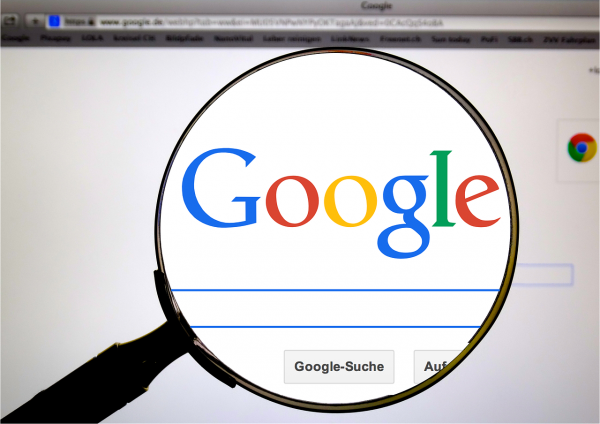The New American is the latest publication to get punished by Google’s “fake news” algorithm
05/25/2017 / By Tracey Watson

In February of this year, Natural News was blacklisted by Google for almost a week for no clearly defined reason. This action by the world’s most popular search engine raised serious issues about censorship and free speech on the Internet. Google tried to claim at the time that the “punishment” was for a so-called “sneaky mobile redirect” on a small number of pages in a subdomain (blogs.naturalnews.com), and went so far as to ban the entire NaturalNews.com root domain and all of its subdomains. The search engine giant refused to directly identify what the specific issue was, thereby refusing us the opportunity to rectify the problem. Mike Adams, the founder and editor of Natural News, remains convinced that this action was blatant censorship because of pro-Trump articles that were being featured at the time. And this was by no means an isolated incident.
Selwyn Duke of The New American is reporting that he has found such insidious censorship is being applied to many conservative news sources, including his own.
When Duke recently wanted to link back to previous stories for an article he had written, he did a quick Google search with the keywords “’Selwyn Duke’ pointed fingers like gun and said bang ‘the new American’” (the article was about schoolchildren being punished for pretending to play with guns). The search results did not include anything relevant to Mr. Duke or The New American. Searches for those exact same keywords on other search engines like DuckDuckGo.com and Yahoo, however, returned loads of relevant results.
Google is censoring information in a very sneaky way which provides plausible deniability: Instead of refusing to list certain websites entirely, its so-called “fake news” algorithm buries them on later pages. Duke calls this “banishment to web Siberia,” and with good reason: Statistics indicate that 92 percent of all search engine traffic belongs to the first page of results for any given search.
Google is by no means the only entity guilty of such censorship; Facebook, for example, has been accused of deleting conservative stories from its news feed. Nonetheless, Google bears a heavy load of responsibility because it is the world’s largest disseminator of information. It would seem that it now bears the dubious title of “largest censor of information,” as well.
Sources indicate that Google uses at least nine different blacklists, and that it makes its censorship decisions without any outside input or authority. [RELATED: Find out what they’re hiding at Censored.news]
As Adams noted in a previous article, “Google’s power to censor is the power to destroy.” The faceless techies behind the world’s most powerful search engine can, with the touch of a single button, destroy a family business or online store, and they don’t even have to provide a reason for doing so. [RELATED: Read about how YouTube has also jumped on the censorship bandwagon.]
Since most news sites depend on Facebook and Google for upwards of 80 percent of their traffic, these two entities can to a large extent totally control what information readers receive and how that information is slanted.
And as Search Engine Watch pointedly asked, “Who controls the controllers of the internet?” The site makes the important point that while Google is portrayed as the Internet’s “noble gate-keeper,” it is in fact a corporation rather than a public service. We need to be careful of placing total blind trust in what we essentially cannot see and have absolutely no control over.
Though Google has taken the moral high ground in some things, like refusing to allow loan sharks access to AdWords, and banning weapons sales through its shopping service, there have been other instances where the company has been happy to fight dirty. One example of this was when Spanish media sources started demanding that websites or programs that displayed content on their pages or linked to them pay fees for content, and Google simply pulled out of the country, leaving digital news sources in that country reeling.
And there have been many other examples of “blatant power grabs” and “downright bullying.”
Perhaps it’s time we start weakening Google’s powerful stranglehold on the search engine market by choosing alternative sources of information like GoodGopher.com for reliable, uncensored content.
Sources:
Tagged Under: Censorship, Google, search engines, search rankings




















